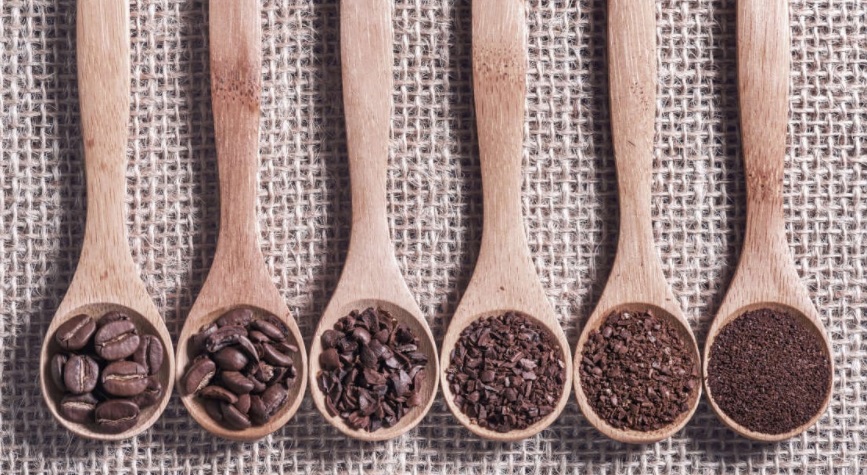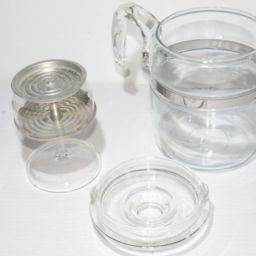
Turkish coffee isn’t just a drink; it’s a unique experience. Unlike other coffee brewing methods, Turkish coffee is prepared using very finely ground coffee beans without filtering. This method delivers a rich, intense, and full-bodied cup, often with a slight sediment at the bottom, which is part of its charm. The coffee is brewed slowly over low heat, allowing its distinctive flavors and aromas to develop fully. This traditional approach to coffee making offers a glimpse into a rich cultural heritage, where each sip tells a story of centuries-old tradition.
Key Takeaways
- Grind Consistency Is Key: The grind size for Turkish coffee is finer than what you’d use for espresso. It’s crucial for extracting the rich flavor Turkish coffee is known for. Inconsistent grind sizes can lead to uneven extraction, affecting the overall taste.
- How It Compares: When we talk grind sizes, Turkish coffee is at the extreme end of the scale. Unlike the coarse grind of a French press or the medium grind for drip coffee, Turkish coffee requires an extra-fine grind, almost powdery in texture, which is finer than the grind used for espresso.
- Achieving the Perfect Grind at Home: To get that perfect grind, a quality burr grinder is recommended over a blade grinder, ensuring uniformity and consistency. While grinding, patience is key. Go slow to avoid heating and potentially altering the coffee’s flavor. Always aim for a powder-like consistency without any grittiness.
The Best Grind Size for Turkish Coffee: Extra Fine
When it comes to brewing Turkish coffee, the grind size isn’t just a detail—it’s the cornerstone of the entire brewing process. For the uninitiated, Turkish coffee requires a grind size that’s even finer than what you’d use for an espresso. We’re talking about a grind so fine it resembles powdered sugar or flour. This isn’t about being fancy; it’s about extracting every bit of flavor and aroma from those precious beans.
Why so fine, you ask? Well, Turkish coffee is unfiltered. This means the coffee grounds are in direct contact with the water throughout the brewing process. A finer grind increases the surface area, allowing hot water to extract flavors more efficiently. The result? A cup that’s rich, full-bodied, and brimming with character.
Achieving this extra-fine grind isn’t just about throwing your beans into a grinder and hoping for the best. You need the right tools—a quality burr grinder is essential. Blade grinders won’t cut it here; they can’t provide the uniform consistency required for Turkish coffee. Think of your grinder as the artist and the coffee grounds as the paint; you’re aiming for a masterpiece, not a paint-by-numbers.
Why Grind Size Matters
Grind size plays a pivotal role in the brewing process, especially for Turkish coffee. The finer the grind, the larger the surface area exposed to water, enhancing the extraction of flavors and oils. For Turkish coffee, an extra-fine grind is crucial as it allows the water to extract maximum flavor, creating a strong, rich, and smooth brew. This fine grind is what sets Turkish coffee apart, delivering its signature intensity and depth.
Comparing Grind Sizes Across Brewing Methods
Turkish coffee requires a grind finer than what you’d use for espresso, making it one of the finest grinds in coffee brewing. In contrast, espresso uses a fine grind, but not as powdery as Turkish coffee. French press coffee calls for a coarse grind, which looks more like sea salt, ensuring a cleaner brew without over-extraction.
Drip coffee sits in the middle with a medium grind, akin to sand, balancing extraction and flow rate for a smooth cup. Understanding these differences is key to mastering each brewing method and the flavors they offer.
Achieving the Perfect Grind
For a consistent and even grind essential for Turkish coffee, a burr grinder is your best bet. Unlike blade grinders, which chop beans inconsistently, burr grinders crush beans to a uniform size, ensuring even extraction and a balanced brew. This consistency is not just a technicality; it’s the difference between a mediocre cup and an exceptional one, particularly for the finely ground Turkish coffee.
Manual vs. Electric Grinders
Manual grinders offer control and a hands-on experience, often preferred by purists. They’re portable and don’t require electricity, making them ideal for travel or small spaces. However, they require more effort, especially for fine grinds. Electric grinders, on the other hand, offer convenience and speed, grinding beans quickly and with less manual input. Yet, they can be noisy and more expensive.
For Turkish coffee, where a fine grind is essential, both types can work well, but ensuring your grinder can achieve an extra-fine grind is key.
How to Brew Turkish Coffee
Brewing Turkish coffee is an art that combines technique with tradition. Start by adding water to your cezve (Turkish coffee pot), then mix in your extra-fine coffee grounds—no filtration needed. Sugar is optional and should be added now if desired. Heat slowly, allowing the coffee to froth but not boil.
When the froth rises, pour a little into each cup, then bring the rest to a gentle simmer before distributing the remaining coffee. Remember, the grind size is crucial here; too coarse, and you’ll miss out on the full flavor profile.
Tips for Perfect Turkish Coffee
- Water Temperature: Don’t let your coffee boil. Aim for a temperature just below boiling to prevent bitterness.
- Brewing Time: Patience is key. Let the coffee simmer slowly to fully extract the flavors.
- Serving: Allow the grounds to settle at the bottom before enjoying your cup.
Advanced Tips for Grinding and Brewing
Achieving a consistent grind is essential. Use a burr grinder for uniformity. Check the grind by rubbing it between your fingers—it should feel as fine as flour. If it feels gritty, keep grinding. Consistency is the secret to extracting all the rich flavors Turkish coffee is known for.
Optimizing Brewing Parameters
Adjusting your brewing parameters can elevate your coffee experience. Besides the grind size, consider the water temperature—just below boiling is ideal. Brewing time is also crucial; too fast, and you won’t extract enough flavor; too slow, and you risk bitterness. Experiment within these parameters to find your perfect cup, remembering that each variable plays a critical role in the final brew.
FAQs
Can I use a regular coffee grinder for Turkish coffee?
For Turkish coffee, you need an extra-fine grind that most regular grinders can’t achieve. A quality burr grinder is recommended to get the powder-like consistency required.
Why does Turkish coffee need to be so finely ground?
The extra-fine grind increases the surface area, allowing water to extract maximum flavor, essential for the strong and concentrated essence of Turkish coffee.
Can I adjust the grind size for Turkish coffee?
While experimentation is welcome, straying too far from the extra-fine grind can result in under-extraction or over-extraction, compromising the traditional flavor profile.
Final Thoughts
Grind size isn’t just a detail in Turkish coffee preparation—it’s a fundamental that shapes the entire brewing experience. Achieving that perfect, extra-fine grind unlocks the full potential of your coffee beans, delivering a cup that’s rich, full-bodied, and deeply satisfying. While the process may require a bit of patience and practice, the result is a coffee experience that’s truly unique and rewarding.
So, take the time to perfect your grind, experiment with your brewing, and savor the delightful journey that Turkish coffee offers. Whether you’re a seasoned aficionado or a curious newcomer, the world of Turkish coffee is a testament to the art and science of coffee brewing, inviting you to explore and enjoy its rich flavors and traditions.









